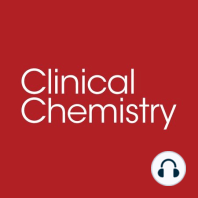23 min listen

Advanced Whole-Genome Sequencing and Analysis of Fetal Genomes from Amniotic Fluid
Advanced Whole-Genome Sequencing and Analysis of Fetal Genomes from Amniotic Fluid
ratings:
Length:
7 minutes
Released:
Apr 2, 2018
Format:
Podcast episode
Description
Amniocentesis is a common procedure usually performed to collect cells from the fetus to allow testing for abnormal chromosomes. Cells from the amniotic fluid are collected through centrifugation, cultured, and after about two weeks, analyzed by fluorescent in situ hybridization, or FISH, or with a microarray to detect abnormal chromosome copy number changes or large chromosomal structural rearrangements. These tests have become the gold standard for detecting Down Syndrome and several other serious birth defects because they have a low false positive rate. However, they are unable to detect the majority of birth defects.Amniocentesis is a common procedure usually performed to collect cells from the fetus to allow testing for abnormal chromosomes. Cells from the amniotic fluid are collected through centrifugation, cultured, and after about two weeks, analyzed by fluorescent in situ hybridization, or FISH, or with a microarray to detect abnormal chromosome copy number changes or large chromosomal structural rearrangements. These tests have become the gold standard for detecting Down Syndrome and several other serious birth defects because they have a low false positive rate. However, they are unable to detect the majority of birth defects. In the April 2018 issue of Clinical Chemistry, a paper demonstrated the feasibility of generating an accurate whole genome sequence of a fetus from either the cellular or cell-free DNA of an amniotic sample.
Released:
Apr 2, 2018
Format:
Podcast episode
Titles in the series (100)
Patient Misidentifications Caused By Errors in Standard Bar Code Technology* by Clinical Chemistry Podcast